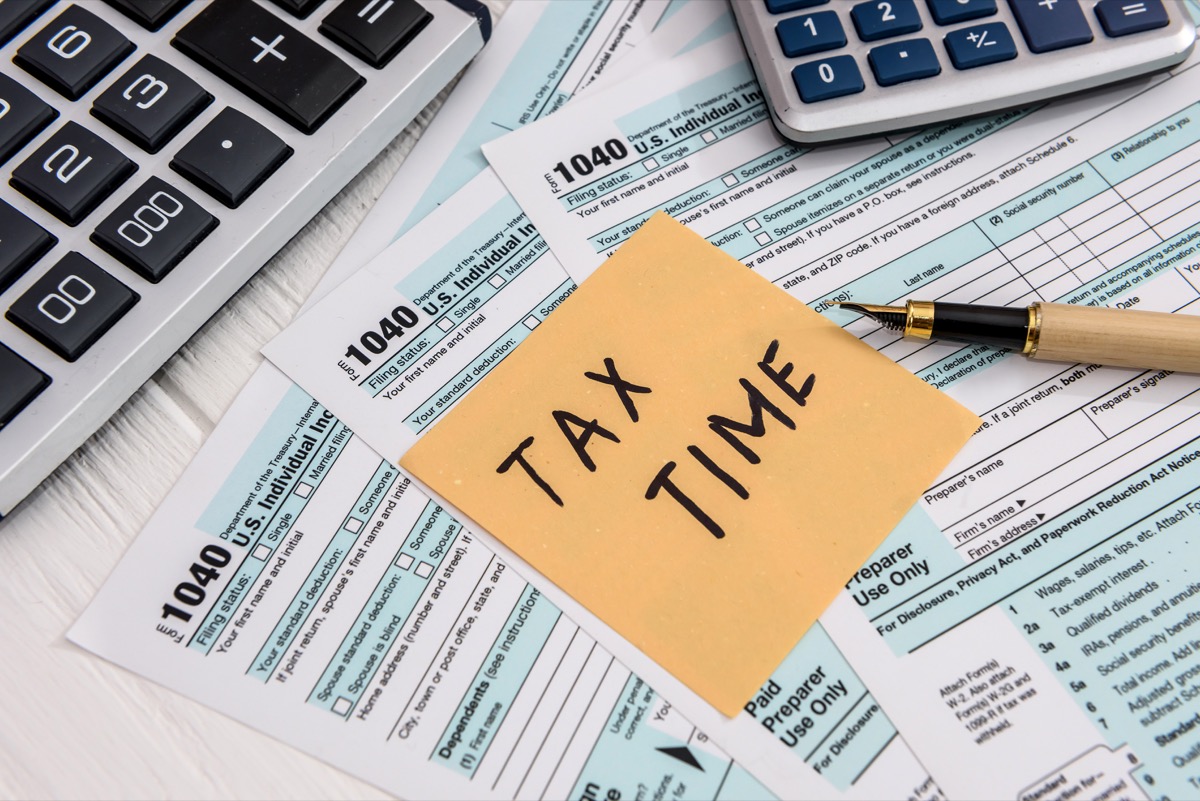If you’re self-employed or a gig worker, take note: Not all taxpayers will have an extra month to file and pay what they owe. According to the IRS and Treasury Department, the May 17 extension “does not apply to estimated tax payments that are due on April 15, 2021. These payments are still due on April 15,” unlike 2020, which saw the same payments extended to July 15.ae0fcc31ae342fd3a1346ebb1f342fcb The agency explains that “in general, estimated tax payments are made quarterly to the IRS by people whose income isn’t subject to income tax withholding, including self-employment income, interest, dividends, alimony, or rental income.” But this arrangement could also fall on others besides those who are self employed, such as “investors, retirees and others [who] often need to make these payments because a substantial portion of their income is not subject to withholding.” And for more helpful information on your taxes this year, check out This Common Mistake Could Delay Your Tax Refund This Year, IRS Says. While the turmoil of the pandemic may have bought the average taxpayer an extra four weeks, some have pointed out that the flood of employment changes in the past year may lead to many people being unprepared or caught off-guard for their new filing. Anyone who doesn’t complete their payments on time will be penalized with interest charges on the late taxes they owe. “With the gig economy people, there are a lot of people new entering into this world of employment, and they might not be aware that they have to make quarterly payments, and so it’s these people that I’m most concerned about,” Melanie Lauritsen, from the American Institute of Certified Public Accountants, told CBS News. “They may be thinking ‘Oh, my tax return got postponed.’ But in reality for them, not really.” And for more on how else your finances might be affected in the coming weeks, check out Your Stimulus Check May Never Come If You Don’t Do This, IRS Says. Fortunately, depending on where you live or certain life situations, there are a few exceptions to the April 15 tax deadline. According to Fast Company, farmers, fishers, casualty and disaster victims, people who recently became disabled, recent retirees, and other individuals whose income isn’t distributed evenly throughout the year won’t be on the hook for the traditional date. This is also true for residents of several state tax filings: On March 11, Maryland announced that the deadline for personal and quarterly estimated taxes for Q1 and Q2 would be pushed back to July 15, while the previously set deadline for first quarter estimated taxes in Virginia will be May 3, CNBC reports. And residents of Texas, Oklahoma, and Louisiana, who suffered the effects of devastating winter storms, will have until June 15 to file and pay their quarterly estimated payments. And for more financial information delivered right to your inbox, sign up for our daily newsletter. Even though there may not be much you can do if you’re a small business or self-employed person, there’s still the potential for some relief for anyone expected to file individual income taxes on May 17. Besides the automatic extension granted by the IRS, you can still apply for a normal extension that will make your taxes and payments due on October 15, Fast Company reports. And for more salary stats you’ll find interesting, check out This Is How Much Money People Your Age Make on Average, Data Shows.



